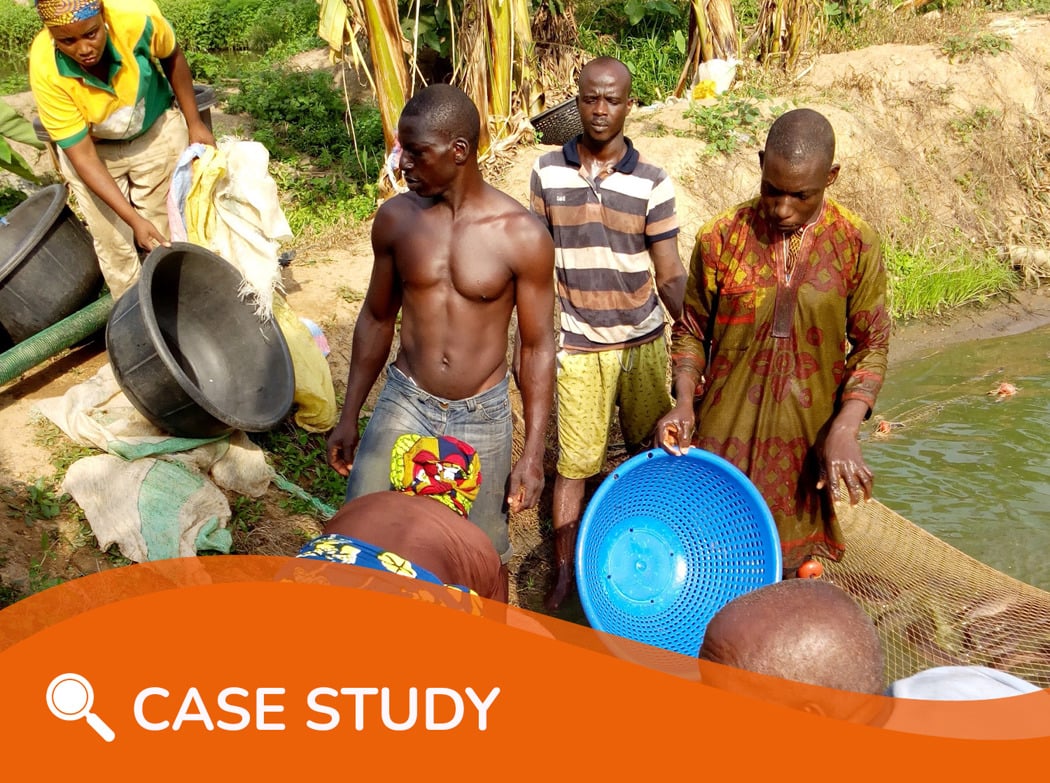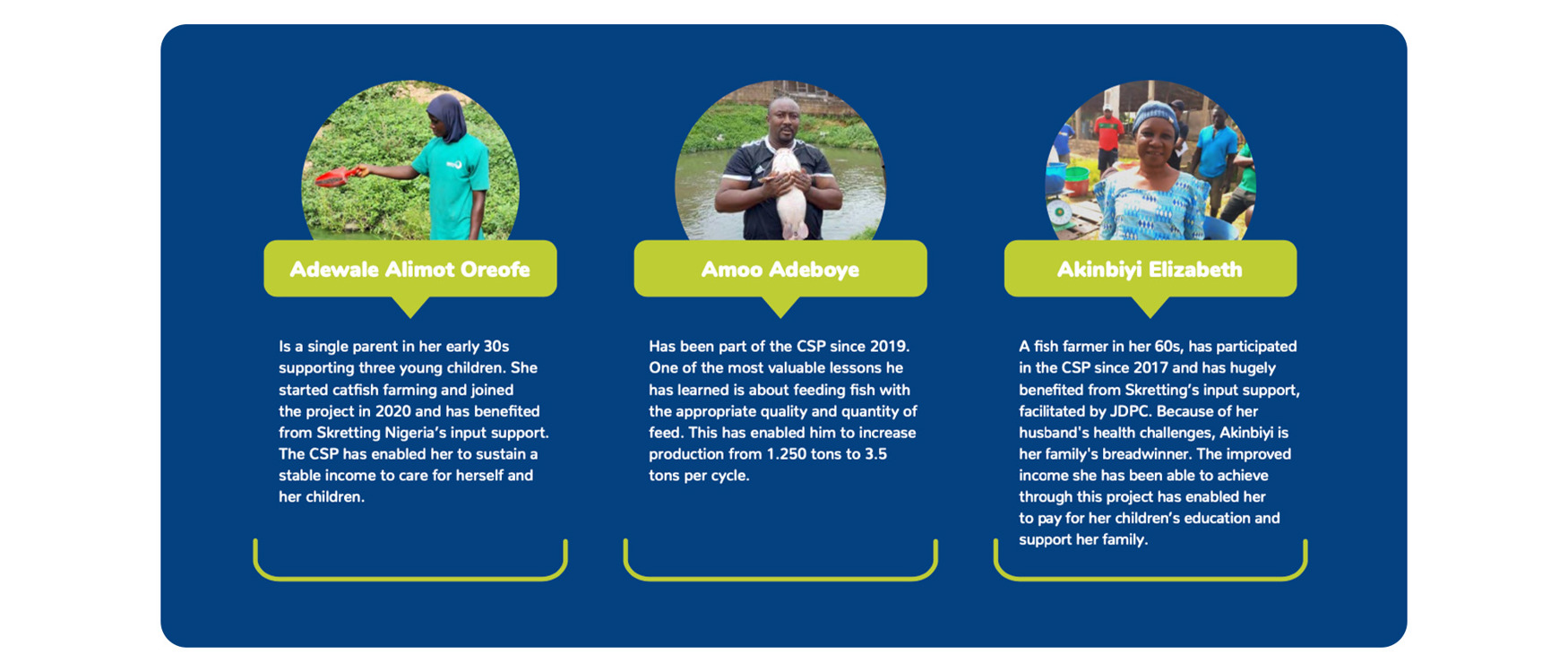Case study: Catfish Sustainability Project helps small-scale farmers succeed
We started the Catfish Sustainability Project (CSP) in Nigeria in 2016 with the objective to enhance the productivity and income of small-scale catfish farmers, promote best management practices for achieving environmental benefits, and facilitate an organised structure to engage stakeholders in catfish production.
The project is funded by Nutreco and Skretting Nigeria and facilitated by the Justice Development and Peace Commission (JDPC) NGO in Ibadan.
We kicked off the sixth year of the project with a target of supporting 1,200 catfish farmers in 2022, and we exceeded that mark by reaching 1,225 direct beneficiaries in 64 catfish farmer groups. CSP currently operates in three states of the federation and 18 farmer groups have recently participated in the project. Out of the 64 existing groups, 30 have successfully initiated cooperatives, four of which had existed before the project intervention.
To further sustain the small-scale farmers’ catfish businesses, the farmer groups successfully launched an Apex body in 2022, with clearly defined aims and objectives. The Apex body brings together representatives from each group to discuss major challenges facing the industry and offer solutions.

The results prove the effectiveness of the project:
- Farmers have been able to improve the survival of their fish stocks by 34.78%, increasing from 69% in 2016 to 93.5% in 2022.
- We have also seen a 30.58% reduction in feed waste, improving the feed conversion ratio from
1.7 to 1.18. - Harvest weight has increased by 155%, boosting the farmers' profits by 86.18%.
- The project resulted in the production of fish free of toxic materials and a reduction in the level of environmental pollution.
